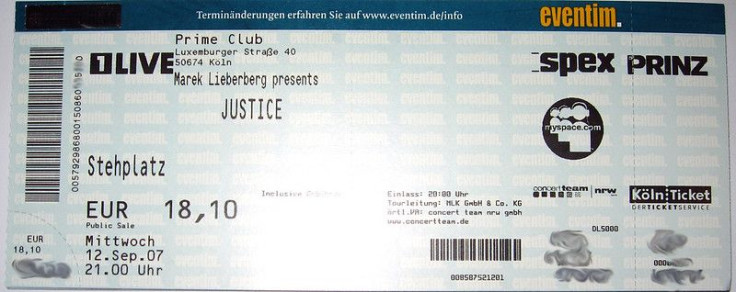Is Your Concert Ticket Real? House Committee Investigating Live Event Ticketing Practices

The House Energy and Commerce Committee on Friday opened an investigation into deceptive practices in the live event ticketing industry – both by primary ticket sellers and on the secondary market.
In letters to Live Nation, Anschutz Entertainment Group, Stubhub, Vivid Seats, TicketNetwork and Tickets.com, the committee sought information and documents related to ticketing policies and practices.
Statista estimates revenue from live event ticket sales has reached $73 trillion so far this year in the U.S. and is expected to grow 9.4% through 2023 to $105 trillion. Music events account for the largest single sector, amounting to $30 trillion so far in 2019, followed by sporting events at $25 trillion.
Committee members said they are concerned about “high, hidden fees, speculative tickets that harm unknowing customers, and ‘white label’ websites that may use practices to deceive consumers,” the committee said in a press release.
In 2016, Congress adopted legislation that prohibits computer software to purchase tickets by circumventing security measures on ticketing websites and asked the Government Accountability Office to study ticketing practices and their impact on consumers. Last year, the committee asked the Federal Trade Commission to examine a host of consumer protection issues.
“Nonetheless, despite ongoing bipartisan efforts by the committee, as well as federal agency action to better understand the current ticketing marketplace, consumers still face a host of troubling practices and trends in the ticketing industry,” the committee wrote. “Many of these issues relate to a lack of transparency and fairness, which places purchasers at an unfair advantage when attempting to buy tickets in the current marketplace.”
The rapid growth in online ticket sales has brought with it a growth in scams and fraud, notes Sift, a global network and data security firm. The company estimates as much as 20% of tickets being resold on such sites as Craigslist and eBay are bogus. Other scams involve phishing whereby ticket-buyers are given a link that opens them up to exploitation. In other instances, fake sellers demand money be wired but then send nothing in return.
“The higher the price of a ticket, the higher the likelihood that the ticket isn’t real. As many as one in four secondhand tickets priced over $200 is fake,” Sift estimated, noting most fraudulent tickets are sold close to an event.
© Copyright IBTimes 2024. All rights reserved.





















